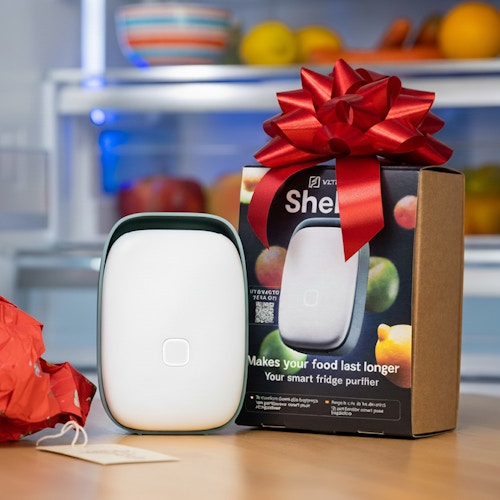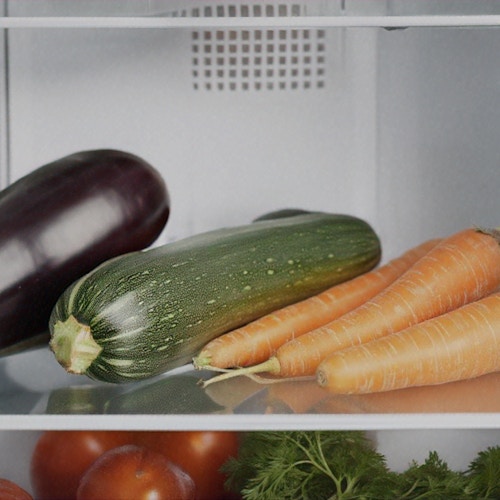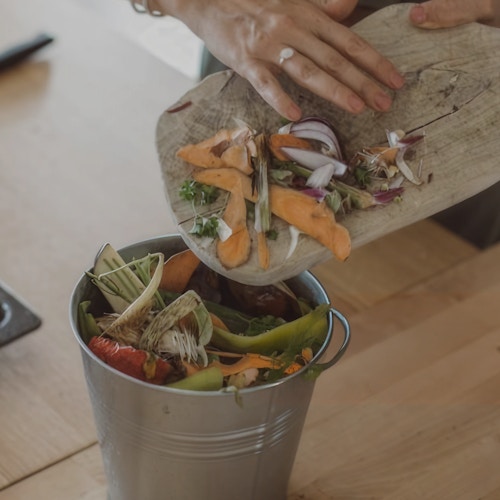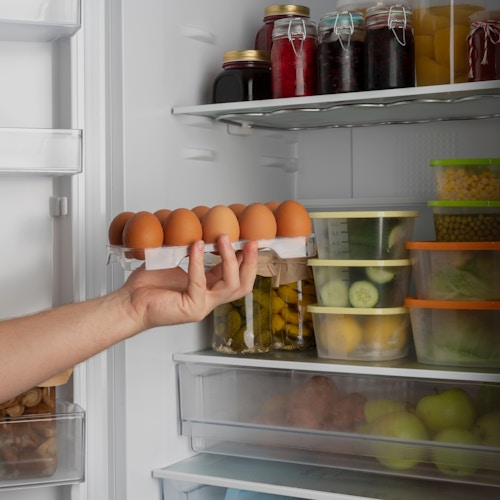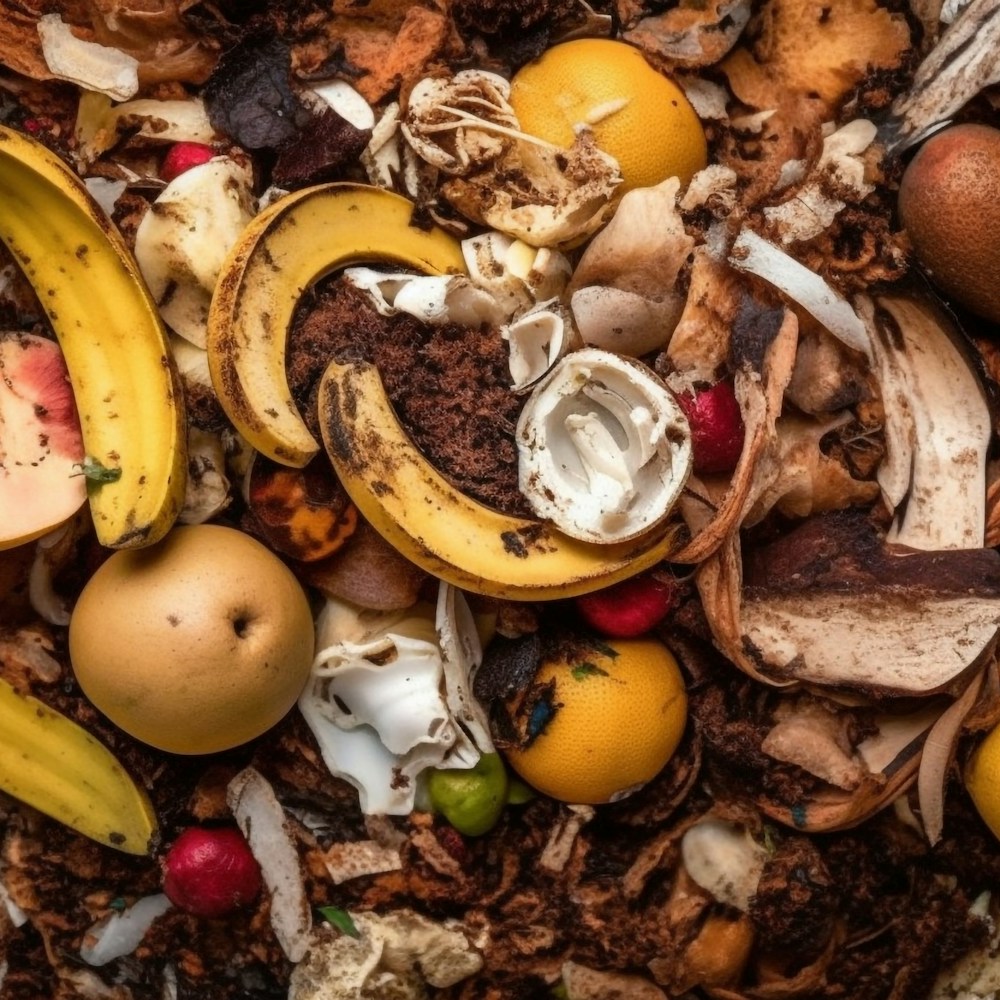
Reducing food waste: why conscious shopping matters
→
Each year, one-third of the food produced globally ends up in the trash, with serious consequences for both the environment and the economy. But cutting down on waste is easier than we think. It all starts with mindful grocery shopping and making use of a few smart tools. Discover how you can make a real difference.
- Rethink the way we shop: conscious choices for a sustainable future
- Choose smarter, waste less: sustainable alternatives start at the store
- Conscious shopping: the first step to reducing food waste
- Eat with the seasons: local, fresh, and better for everyone
- Plan your meals, reduce impulse buys
- Shelfy & Vitesy: smart allies against food waste
Rethink the way we shop: conscious choices for a sustainable future
Every item we put in our shopping cart has a story of land tilled, water used, energy consumed, and the hands that cultivated and transported it. From farm to table, food goes through numerous steps. A small mistake, a break in the supply chain, poor storage, or simply a forgotten expiration date can undo all that effort in an instant.
According to the FAO (Food and Agriculture Organization of the United Nations), nearly one-third of the food produced globally is wasted each year. That’s about 1.3 billion tons of food—and it's not just the food that’s wasted, but all the resources used to produce it. Food waste accounts for around 8% of global greenhouse gas emissions, making it a major contributor to climate change.
And the problem isn’t just global it’s personal. In the average household, over 20 kilos of food are wasted every year. That’s a clear signal to reflect and to act.

Choose smarter, waste less: sustainable alternatives start at the store
Small decisions can lead to big impact. Opting for loose produce, using reusable bags, choosing recyclable packaging, and cutting down on plastic these are simple but powerful ways to reduce our environmental footprint.
Every time we make an intentional choice, we’re investing in a cleaner, more respectful future for our planet. You don’t have to overhaul your lifestyle overnight. Just start with everyday habits that, over time, add up to significant change.

Conscious shopping: the first step to reducing food waste
Shopping consciously is the foundation of reducing food waste and adopting a more sustainable lifestyle. It begins with planning meals, making a detailed list, and sticking to what you actually need helping you avoid impulse purchases and unnecessary food that often ends up wasted.
Favor fresh, seasonal produce. Choose packages with expiration dates that match your consumption habits. Be cautious of bulk deals or promotions that encourage overbuying. Reading food labels more carefully can also guide smarter decisions revealing not just what’s in the food, but where it comes from and how best to store it.
Leftovers can be a resource, not a burden. Plan to reuse them in creative ways to avoid tossing them out. Proper storage is key too, it keeps food fresh longer and maintains its nutritional value.
Where possible, buy unpackaged goods or source items from local producers. This reduces the environmental impact of packaging and transportation. And involve the whole family teaching even the youngest to value food fosters long-lasting, responsible habits.
These small actions help cut waste, save money, and support a more ethical, sustainable food system.

Eat with the seasons: local, fresh, and better for everyone
Eating with the seasons isn’t just a green trend it’s a meaningful choice for your health, your community, and the planet. Seasonal fruits and vegetables are fresher, tastier, and far less polluting: they travel shorter distances, require less packaging, and need fewer preservatives.
Choosing local produce supports nearby farmers and helps sustain local economies. It also reconnects us with nature’s rhythms, encouraging a more varied and balanced diet.
Each time we buy with awareness, we strengthen the bond between growers and consumers. It's a simple yet powerful act that benefits the environment, supports community resilience, and nourishes us more naturally without compromising on taste.
Plan your meals, reduce impulse buys
Smart shopping starts at home with a pen, a notepad (or your favorite app), and a touch of organization. Planning your meals for the week is a savvy way to save time, cut waste, and sidestep the daily stress of “What’s for dinner?”
Knowing what you’ll cook allows you to buy exactly what you need, avoiding impulse purchases—often driven by flashy discounts or appealing displays, that may go unused and spoil.
Start by “shopping your pantry”: check what you already have before heading to the store. Got extra zucchini? Plan a risotto or veggie tart to use them up. Align your meal plans with your weekly schedule, prepping in advance on busy days.
There are also great free apps that help you create balanced menus and auto-generate shopping lists.
With a clear plan and a focused list, your shopping becomes more intentional, sustainable, and stress-free an act of care for yourself, your family, and the environment.

Shelfy & Vitesy: smart allies against food waste
Reducing food waste isn’t just about good habits it’s also about smart tools. Proper food storage helps keep items fresher longer, reduces unnecessary purchases, and keeps more food out of the trash.
That’s where Shelfy comes in a small device that sits in your fridge and purifies the air using photocatalytic technology. It limits the spread of bacteria and mold, neutralizes bad odors, and creates a cleaner, healthier environment inside your fridge. Fresher air means longer-lasting food and less waste. Plus, Shelfy’s filter is washable under the tap, making it an eco-friendly and economical choice.

Through the Vitesy Hub app, you can access the Food Library, a smart tool packed with tips on how to properly store different types of food. It gives seasonal guidance on fruits and vegetables, shows the best fridge zones for each item, and helps prevent premature spoilage.
When connected to Shelfy, the app can also monitor fridge temperature and humidity, and remind you when it’s time for a clean ensuring your fridge is always running at its best.
Using Shelfy and following the Food Library's advice is a practical way to take better care of your food, your budget, and the planet. One small daily action really can make a big difference.
Ready to make your fridge part of the solution? Discover how Shelfy can help you fight food waste starting today.
